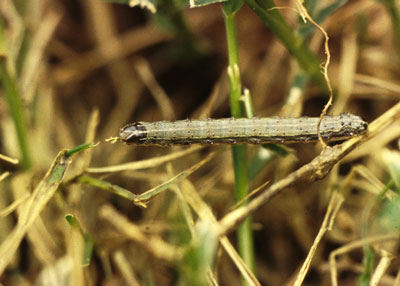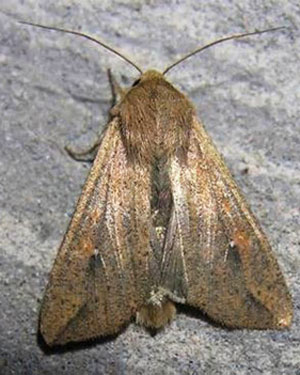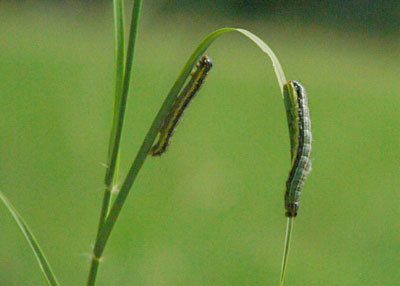March of the Armyworms
When you signed up for e-gardens, I promised you it would be ultra-timely. That’s the main reason we took it weekly. This topic proves the importance of that decision.
I’ve gotten questions asking about armyworms from several areas of Texas in the past three days. So I scuttled my fun topic in favor of a critical issue.

Armyworms feed on bermudagrass blades. (Photo courtesy Texas A&M Entomology)
When they’re visiting our landscapes, armyworms generally prefer bermudagrass turf. They’ll dine on almost any other plant, of course, but bermuda is their delicacy. So if you’re seeing patches of browned grass that resemble drought damage, look closely to see if the blades are being devoured by these larvae.
The good news is that they don’t do major damage to bermudagrass lawns. They’ll strip off all the green blades, but we often do that ourselves – once or twice a growing season, as we scalp the grass with our mowers. And you’re familiar with how well it comes back from scalping. Armyworms won’t be any more damaging than that.

University of Georgia photo of adult armyworm moth.
Help your lawn recover. Apply a high-quality, all-nitrogen fertilizer and water it into the soil with a deep soaking. If you plan to overseed with ryegrass for the winter, this would be a great time to do that, but only if you do not intend to apply a pre-emergent weedkiller.
Otherwise, all you need is patience and a little time. Your lawn should be fine.
Here is what Texas A&M has to say about armyworms.

Armyworms feed voraciously on grass blades. They are easily controlled with labeled insecticides. Photo courtesy Texas AgriLife Extension Entomology
